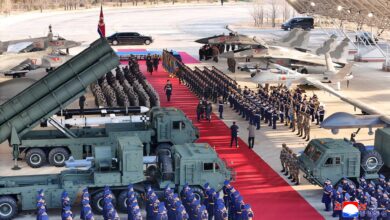On January 20, 1952, an official of the Ministry of Public Health was summoned by Kim Il Sung to the Supreme Headquarters. He presented to Kim Il Sung a written document on the measures to be taken against the US army’s germ warfare atrocities, and demanded a large amount of funds.
The official anxiously waited for Kim Il Sung’s reply.
To his utter surprise, Kim Il Sung said as follows:
“At present, our people are fighting at the cost of their lives for victory on all parts of the front and the rear. We must spare nothing for these patriotic and self-sacrificing people. Let us enforce the system of free medical care.”
The official was dumbfounded for a while.
Smiling at the official’s surprise, Kim Il Sung asked him how much the people were paying for medical services.
The official replied that both blue- and white-collar workers enjoyed free treatment from the State and social insurance system, that farmers and private merchants paid outpatients’ fees and that the dependants of workers and office employees paid 40 percent of the price of medicine for outpatients.
“Forty percent? …” Kim Il Sung said to himself and thought a while, before saying, “As matters stand, we are in a hard situation. But we must enforce a free medical care system, in order to protect the people’s lives and promote their health. Nothing is more precious to us than the people’s lives.”
On November 13, 1952, ten months later, the Cabinet published its Decision No. 203 “On Enforcing the System of Free Medical Service.”
Reporting on this decision, a foreign newspaper made fun of the American warmongers as follows:
“Although the United States has been devastating Korea with a shower of bombs, Korea has slapped the United States hard across the face with the huge bomb No. 203, which is as powerful as ten A-bombs.”

